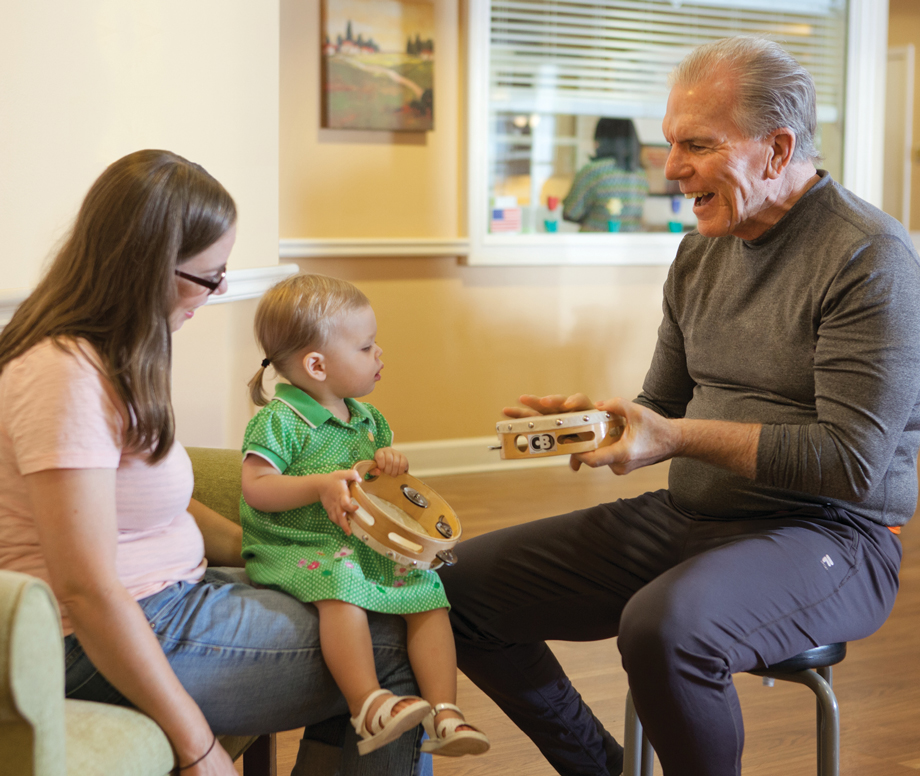
The Arbor Terrace assisted living facility in Alpharetta is typically a pretty quiet place. But on Wednesday and Friday mornings, the space is filled with an unexpected sound: the excited chatter and squeals of young children. At the Giving Tree Intergenerational Preschool Program—a pilot program implemented last January by the George Center for Music Therapy—classes of four- and five-year-olds join residents for weekly sessions of singing, playing instruments, and generally getting to know one another.
“Let’s pass out scarves to our adult friends!” chirps Melissa Sorensen, a music therapist with the George Center, who runs the program. About a dozen seniors sit in a circle, along with five kids ranging in age from toddlers to kindergarteners. (In the summertime the program morphs into weekly drop-in sessions for local children of all ages.) Today Sorensen is leading the group in a picnic-themed musical activity, and she wants the seniors to wave the scarves up and down while the kids pretend that they’re flying kites. Mary Poppins’s “Let’s Go Fly a Kite” plays over a set of speakers. During the school year, the ratio of seniors to kids is one-to-one, and some of the residents are jockeying for the children’s attention. One resident slyly tosses her scarf on the floor and asks a curly haired three-year-old girl to return it to her. The girl looks unsure but timidly complies.
“At first some of the kids are fearful,” says Sorensen. “Even if [the residents] are high-functioning, if they have disabilities or walkers, it can be kind of scary to small children. They don’t really know what to make of it.” To help reassure the kids and encourage connections, Sorensen initiates lots of games and activities in which young and old have to work together. She’ll ask older residents to talk about popular music from decades past or their favorite songs from childhood.
“The summertime drop-in program is great, but what’s so special about the preschool is that it’s the same kids over the course of 16 weeks. After a few sessions, I’ll start to hear, ‘I want to be with Miss Rose today!’” she says. “You start to see a mutual joy in the activities and a trusting relationship.”
Research shows that cross-generational connections benefit everyone involved. For young people, it provides a positive view of aging, making them less likely to stigmatize the elderly. For older adults, it can reduce the likelihood of depression and social isolation, improve speech and conversation, and strengthen feelings of self-worth. “[The program] is not just about being heart-warming,” says Sorensen. “It’s about therapeutic value.”
The Giving Tree program has proven so successful the George Center plans to expand it to two additional senior living facilities, with more to come. Stephanie Mock, the engagement director at Arbor Terrace, says that even residents that might not normally participate in music therapy will peek their heads in or inch their walkers toward the door when the kids arrive.
“In some cases, residents might not have grandkids or great-grandkids, or they might not live nearby,” she says. “We’re bringing in the outside world a little bit. To watch them light up when the children break out of line to come give a hug is amazing.”
Cast your vote for Groundbreaker of the Year
This article originally appeared in our September 2016 issue.













